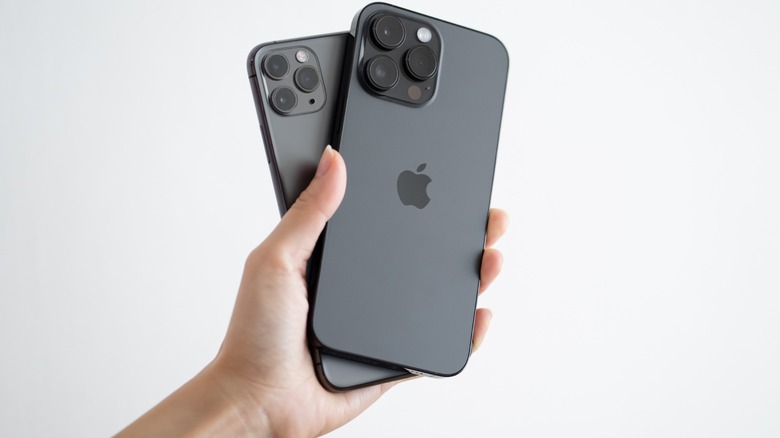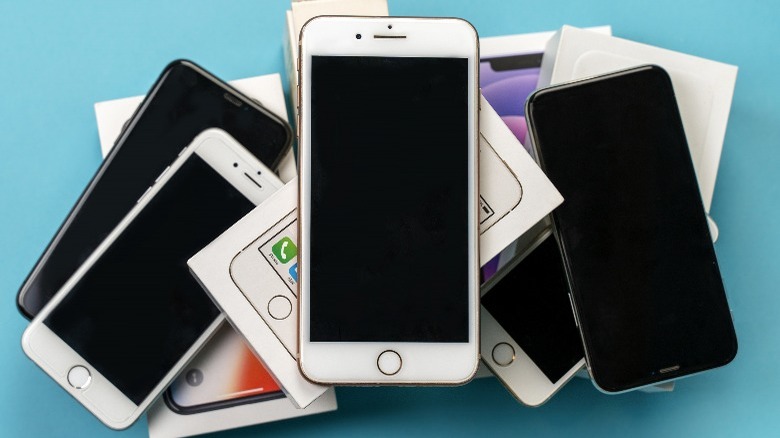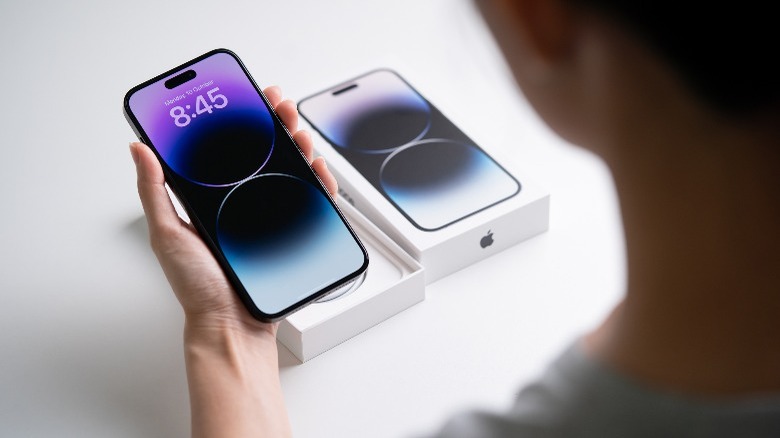Is It Smarter To Buy An Old iPhone? Or Should You Invest In The Newest Model?
Apple's most successful product, the iPhone, is a prime example of technological evolution, with a range of new devices in different sizes and options being dropped yearly like clockwork, since the first iPhone in 2007. iPhone's biggest advantage over its competition is longevity, consistency, and quality. All three of these factors mean that a person looking to buy an iPhone can confidently consider going with a model from previous years, ending up saving a considerable amount of money.
If you are planning to retire your current smartphone and are facing the dilemma between grabbing a shiny new iPhone off the shelf or picking up an older model — be it new or through the secondhand market — certain things may push you more towards one of the two choices. Whether you're drawn to the plethora of new cameras, pristine design, or one the fastest mobile chips on the planet — or if you just need something that does the job on a budget, let's navigate into the practicalities of selecting your next iPhone.
The vintage advantage
Affordability is one of the biggest factors driving the demand for the secondhand smartphone market. Given how extravagant phones have gotten over the years, one can often find a model from one or two years ago with a significantly cheaper price tag. iPhones are also known for smaller, incremental updates thanks to Apple's "if it ain't broke, don't fix it" philosophy — which works in favor of those eyeing older models since you wouldn't be losing out on too many features.
Another cause of concern you can shrug off is performance and longevity. Apple's astonishingly good track record means even an older iPhone will be supported for years. In context, the iPhone X released in 2017 received its last iOS update in 2022, and 5 years of software support is plenty. Therefore, buying an older model will be cost-effective, saving even more when shopping in the secondhand market.
Going with a used phone has its obvious share of concerns. For starters, you will most likely require a battery swap, which adds to the overall cost. Even if you get lucky and pick up an older iPhone in mint condition for an incredible deal, you will lose access to warranty, software updates, and features sooner than the latest iPhone available at the time of purchase. Rest assured, camera quality and performance are two important factors that seem to hold their ground against time when it comes to iPhones.
Cutting-edge but costly
Apple likes to lock exclusive features to new releases, and if you care dearly for the latest features, there isn't much wiggle room when it comes to picking which iPhone to buy. Certain factors, including a better display, bigger battery, and improved optics, are reserved for the more expensive Pro series of iPhones, and it's easy to save a considerable amount of money by opting for the regular iPhone model while still enjoying most of the new features.
The premium price tag can almost be justified by the lengthened span of software support that Apple brings to the table. Pairing that with state-of-the-art cameras and improved battery efficiency — investing in the latest iPhone also has its benefits. Moreover, as we approach the age of artificial intelligence and augmented reality in full gear, every bit of the extra performance you get out of a newer iPhone goes a long way.
However, the pitfall of buying the latest hardware is that newer technology depreciates faster in value. iPhones rarely bring substantial year-over-year leaps in hardware, with most of the new features being part of the new iOS version, which sometimes make their way to the older models. Weighing your requirements carefully may suggest that going with an older iPhone with a cheaper carrier contract might be more beneficial, not only to your wallet but also to the environment.


